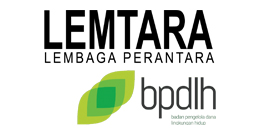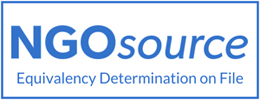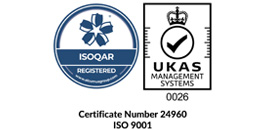Penabulu Profile
Empowered Indonesia Civil Society
Penabulu Foundation was founded in Jakarta in 2002, based on a certificate of notary (No. 1, on October 22, 2003), which arranged by Rita Riana Hutapea, SH, a public notary in Jakarta, which has been confirmed by decree from Indonesian Ministry of Law and Human Rights (No. C-435 HT.01.02.TH 2004,dated August 5, 2004). Ever since it was founded, Penabulu has been always placing its vision on the empowerment of civil society in Indonesia.
In the first period (2002 – 2009), Penabulu found its first momentum with a focus on the strengthening of financial management aspects of non-profit organizations. PSAK 45 or Statement of Financial Accounting Standards No 45 on Financial Statements of Non-Profit Organization/Entity which issued by the IAI and effectively applied in the financial year of 2000 (revised in 2011) has become the main background of Penabulu to strengthen its work in the first period. Based on the financial reporting standards, the requirement of non-profit organization accountability started to be strongly voiced mainly by donors, the biggest resources contributor of civil society organizations in Indonesia. The period closed by development of the NGO – financial community as a sharing space of literacy and knowledge with an intervention of information and communication technology which was then driven the development of interactive web 2.0 era, the web that allowed for online interaction between community members.
Penabulu’s previous experience in improving financial management capacity of civil society organizations in Indonesia, brought Penabulu to get in touch with other elements of organizational management. Penabulu then came to the conclusion and a new belief, that transparency, accountability and sustainability of civil society organizations in Indonesia not only be built on the pillars of financial management toughness.
Then in the second period (2010 – 2014), Penabulu tried to develop additional focus with a new strategic areas on the aspect of strengthening the institutional and program management (planning-monitoring-evaluation), human resource management, maximizing the utilization of information and communication technologies, along with data-information-knowledge management. In addition to the management aspect, Penabulu also started to develop competencies and portfolios on resource mobilization efforts and the development of social business models.
This second growth period was passed in conjunction with the half-transformation journey of civil society organizations in Indonesia. In addition to external changes such as the development of powerful fundamental era of digital technology, the pendulum friction of world economic power, as well as the rate of economic growth in Indonesia itself; changing issues of support and donor funding patterns is the principal cause of the transformation process. In this transformation period, institutional strengthening of civil society organizations in Indonesia has reached the highest point of need. Accountability issues as a target in the initial period has been strengthened by the issue of professionalism (effectiveness and efficiency of performance) and also the issue of sustainability (or the threat of discontinuation) civil society organizations in Indonesia.
This momentum allowed Penabulu to develop the primary service units and support, to create products as the result of experience and knowledge that gained over the years, doing collaborative work together with many strategic partners, which are spread throughout Indonesia, and at the same time, tried to diversify the sources of organization funding support.
Still within the framework of the transformation of Indonesian civil society organizations, Penabulu Alliance was born at the second period; strategic alliance for development of the ideas, initiatives, and activities to strengthen the capacity of Indonesian civil society organizations in the form of ‘loose ties’, where each element in it has freedom of movement in achieving their stated purposes, but still bound collectively on a common vision in the long term, namely: the empowerment and sustainability of civil society in Indonesia. Penabulu interpreted this institutional engineering as an attempt to build sustainability goals of the organization in the future; focus on the independence of each services unit, and try to survive on the excellence of services and products of each unit itself, no longer have to rely on donor support.
Strategy and the process of achieving the final order in second growth period of Penabulu will still be held and still needs to be tested and modified. At the same time, Penabulu now entering the third period of growth since the beginning of 2015.
In this new period, Penabulu realize that the definition of ‘civil society’ needs to be reinterpreted. Isn’t it: a community-based waste management unit, volunteer groups, independent journalists, professional associations, social-businesses start up, women’s groups and difable communities or other collective initiatives who offers alternative solutions and even about 74 thousand villages now obtain additional resources from government budget; are all elements present on the Indonesian civil society? Penabulu believes that the role of civil society in sustainable development will be increasingly irreplaceable as a pivotal guard of the balance between other development actors: the government and the business sector. But, the existence of civil society itself actually threatened by some internal problems, such as resource gaps and long-term labor support, weak institutional capacity and poor consolidation of the power in each work issues.
Penabulu now encouraging itself to take the role as a ‘civil society resource organization’. As a resource organization for civil society in Indonesia, Penabulu will do its best to mobilize, manage and distribute resources in any form to support the work of civil society in Indonesia. Penabulu as good as possible will convert the obtained energy as efforts to strengthen, empower and guarantee the sustainability of civil society organizations throughout Indonesia. Converting all the energy into space to grow together, space to consolidate power of ideas and work of civil society in Indonesia, triggers and boosters of governance improvement for better and more sustain development of future Indonesia.




